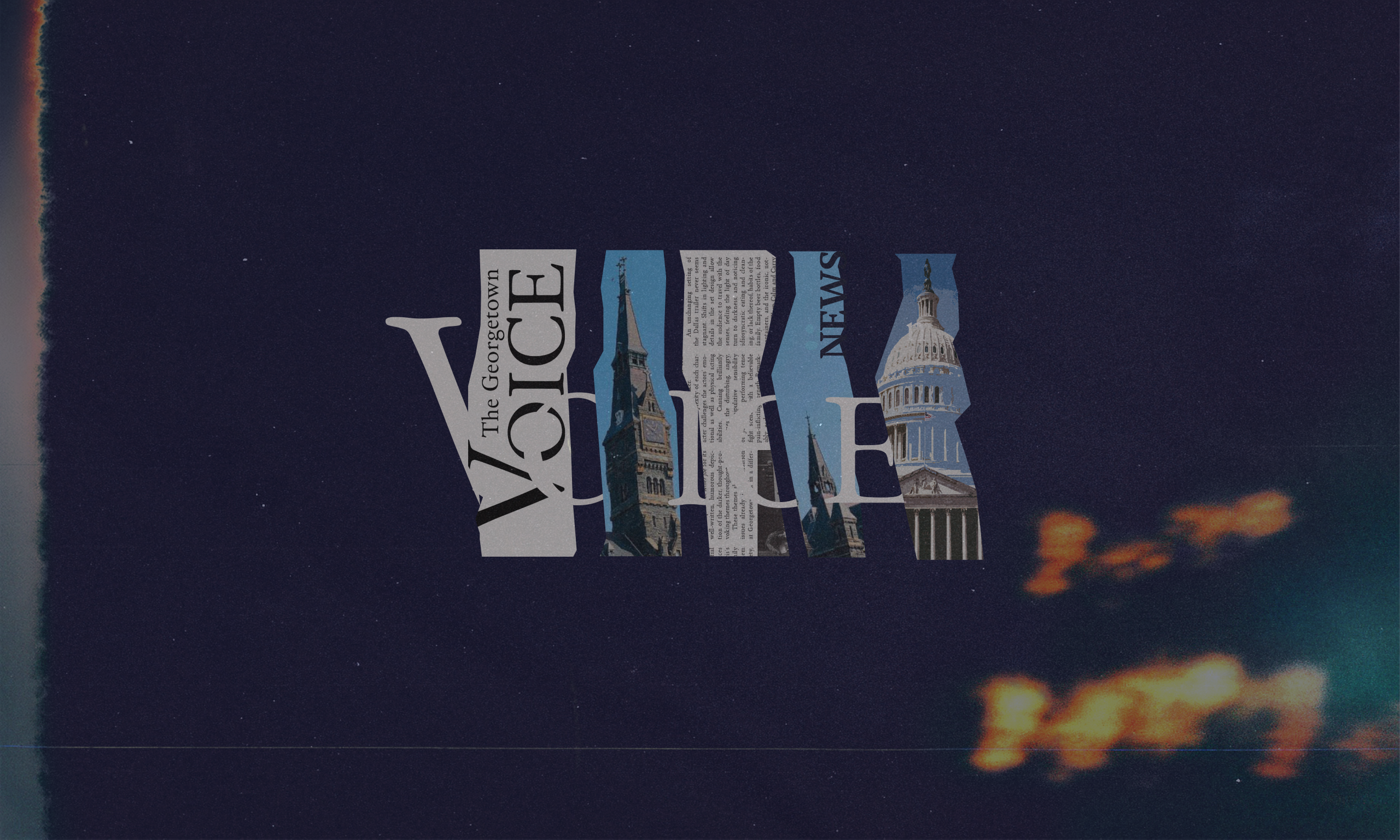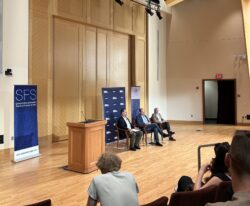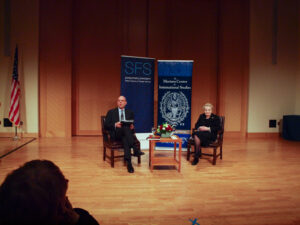On Oct. 16, Georgetown University’s Science, Technology, and International Affairs (STIA) program hosted a conversation between public health leaders Dr. Tom Frieden, who is the former director of the Centers for Disease Control and Prevention (CDC), and Dr. Anthony Fauci, the former director of the National Institute of Allergy and Infectious Diseases (NIAID), as part of the Maloy Distinguished Lecture in Global Health.
The discussion was centered on Frieden’s new book The Formula for Better Health: How to Save Millions of Lives—Including Your Own, which addresses solutions to global health challenges through proven public health solutions. He outlined the “see, believe, create” framework he explores in the book, emphasizing the importance of recognizing hidden health threats.
Frieden recounted how early in his career, close surveillance revealed a multidrug-resistant tuberculosis outbreak in New York City hospitals during the late ’80s and early ’90s.
“This is a public health superpower: to see the invisible,” he said.
The ability to uncover hidden patterns, he argued, is important for addressing “silent killers” like hypertension.
“[Hypertension] kills about 11 million people around the world. That’s every five deaths,” Frieden said. “It kills more people than all infectious diseases combined.”
Friedan emphasized the need to stay alert and act quickly in public health, pointing out that even a 20-point rise in blood pressure can double the risk of heart attack, stroke, or death.
Fauci, a Georgetown distinguished university professor, complemented Frieden’s insights in the book by stressing how the field of medical health updates itself as new evidence emerges.
“We didn’t realize that it was transmitted predominantly by aerosol,” Fauci said, reflecting on the COVID pandemic. “And when we found out what it was, we didn’t realize that most of the transmissions were from people who were without symptoms.”
The speakers addressed pressing challenges ranging from the tearing down of rigorous vaccine advisory processes to the lack of primary care access for 100 million Americans—about one-third of the population. Frieden called this a “staggering” failure, given that the United States spent $4.9 trillion on healthcare in 2023.
Recognizing the urgency of these public health failures, Frieden emphasized the need to act decisively when opportunities arise.
“Do the hard stuff, because you know, a new administration has a lot of political capital early on,” said Frieden, reflecting on his time serving as NYC Health Commissioner from 2002 to 2009. “That’s like a new car that you drive off— the minute you drive off, it starts going down fast.”
Frieden put his philosophy of decisive action, even on unpopular measures, by pushing through a $1.42 tobacco tax and implementing a smoking ban in bars and restaurants to reduce smoking rates.
The lecture also discussed the decreasing trust in public healthcare, made worse by misinformation. Frieden pointed to profit-driven narratives as a main reason, such as false claims linking vaccines to autism.
He advocated for rebuilding trust through deep and empathetic listening and addressing community concerns, recounting a time when he spent three hours talking with a group of vaccine-hesitant Trump supporters during the COVID-19 pandemic.
He noted that many people with legitimate questions about public health often feel unheard or dismissed. “What was really clear was these folks had totally legitimate questions, and they felt this hadn’t been answered,” he said.
Students in attendance found the lecture both inspiring and thought-provoking. Sophia Clyne (SFS ’29) expressed her admiration for Frieden’s expertise and passion for the subject.
“He was an excellent communicator and I loved his framework,” Clyne said. “The idea of ‘seeing things that are invisible,’ I thought that was a powerful idea.”
Clyne was particularly struck by the way that Frieden and Fauci spoke about “silent victories” of public health.
“One life saved by some sort of advanced technology […] that only saves an individual is highly publicized,” she said. “Whereas hundreds of thousands of lives are saved via public health initiatives, yet they’re oftentimes extremely invisible.”
Josh Diaz (SFS ’29) highlighted the lecture’s call for collaboration across the political aisle.
“Doctor Frieden’s comments also made me think about unlikely partnerships that could form from shared common health interests like better quality food and less polluted cities,” he wrote to the Voice in an email.
Diaz, who doesn’t plan to pursue public health, found the talk enriching.
“Learning about other fields of study in my free time has enriched my life, studies, and understanding of the world,” Diaz wrote.
The lecture also resonated with students for its career advice. Frieden shared a pivotal moment at a time when he was making a decision about his career. When on a hike together, his dad—a cardiologist and “doctor’s doctor”—suggested public health could be his calling, bringing together his interests in policy and science.
“I’d never heard the term public health before,” Frieden said.
Yet that conversation with his dad sparked a lifelong passion, particularly his early experiences as an Epidemic Intelligence Service Officer in New York City.
Fauci echoed this, describing his early interest in infectious diseases, saying, “it was like falling in love.”
Clyne found the doctors’ passion for public health inspiring. She appreciates how the speakers’ love for their niche transfers to the students, inspiring to explore their own academic and personal paths.
“When you absolutely love something you make so much time for it,” Clyne said. “It doesn’t even become work, and therefore the accomplishments, the accolades, the distinguished positions—those fall into place.”
She added that she was inspired by how these talks encouraged learning through curiosity, not through stress and a need to memorize.
Clyne shared how diving into these lectures sparks something special that learning in a classroom can’t always succeed in.
“When I’m just purely listening to something, it just ignites curiosity and enthusiasm and excitement,” she said.
Editor’s note: This article has been edited to correct the spelling of Sophia Clyne’s name.







